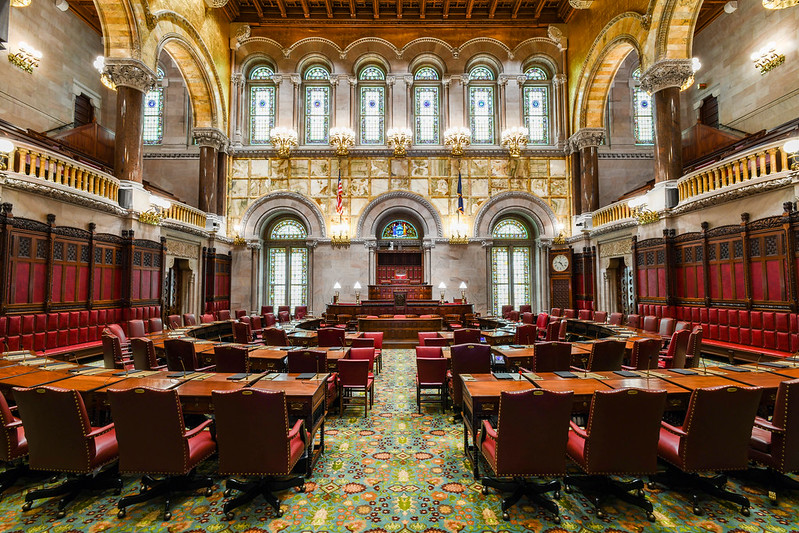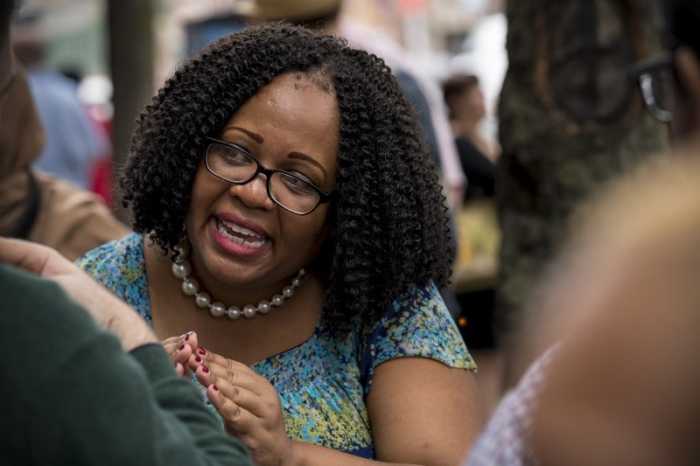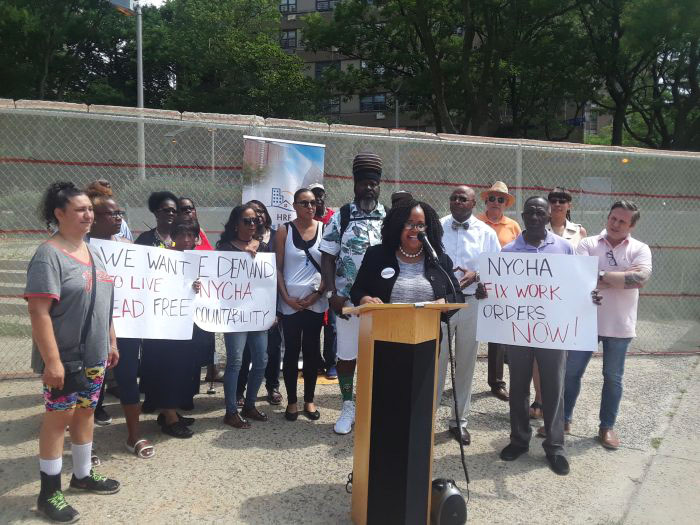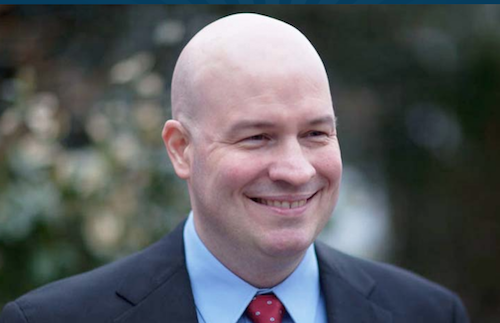While debate on several bills has yet to wrap in the Assembly, the state Senate ended its session last night and both chambers passed a bevy of progressive legislation addressing issues like abortion access, gun control and voting rights as this year’s legislative session ended Thursday night.
The legislature also passed bills extending mayoral control over the city’s public schools for the next two years, over the protests of Mayor Eric Adams. However, they failed to renew the lucrative 421-a tax break that real estate interests argue is essential to building affordable housing units, but critics say has mostly served as a tax giveaway to big developers that hasn’t resulted in the construction of enough truly affordable apartments.
Governor Kathy Hochul, state Senate Majority Leader Andrea Stewart-Cousins and Assembly Speaker Carl Heastie all came together to make the last minute legislative push before lawmakers go home to their districts for the remainder of the year.
The gun control bill package, which was put together over the past couple of weeks in response to recent mass shootings in Buffalo and Uvalde Texas, includes several new bills to mitigate gun violence and measures to strengthen gun laws that are already on the books. The package includes raising the age to purchase an assault-style rifle from 18 to 21, requiring licenses to own assault rifles, banning the sale of body armor to those who aren’t in law enforcement, strengthening the state’s Red Flag Law and requiring microstamping of ammunition sold in the state.
In a statement, Hochul said that the recent mass shootings have proven these bills are necessary to fill the cracks in New York’s already tough gun laws.
“We cannot be satisfied by New York’s already tough gun laws,” Hochul said. “Shooting after shooting makes it clear that they must be even stronger to keep New Yorkers safe. This comprehensive package will close loopholes, give law enforcement the tools they need to prevent easy access to guns, and stop the sale of dangerous weapons to 18-year-olds.”
The state Senate GOP, however, wasn’t on board with the gun control bills and proposed their own package of countermeasures that focussed on mental health and enforcing harsher punishments for violent crimes.
The package of reproductive rights legislation followed a leaked draft Supreme Court majority opinion in April overturning the landmark Roe v. Wade decision that legalized abortion nationally. The bills would give abortion service providers added legal protections for performing the procedures, shield women from other states seeking abortions in New York from extraditions and arrests and give heightened security to abortion service providers.
“Like the vast majority of Americans, I was horrified to learn that extremists on the court are likely to strip away the right to an abortion by overturning Roe,” Hochul said in statement. “This decision, once announced, will have devastating consequences for the health, wellbeing and economic security of millions of women across this country. But New York is not backing down. A few weeks ago, I announced a nation-leading $35 million investment to support abortion providers across New York. Now, thanks to the determined leadership of Majority Leader Stewart-Cousins, Speaker Heastie, and our partners in the legislature, we have developed a comprehensive package of new legislation that focuses on protecting both abortion providers and their patients.”
The voting rights legislation that passed both chambers, dubbed the John R. Lewis Voting Rights Act of New York, would strengthen voter protections by giving underrepresented individuals the ability to sue over voter suppression at the state level. The legislation would also create a database of election information and expand language access at polling sites.
The deal to extend mayoral control included increasing the size of the Panel for Education Policy from 15 to 23 members, which critics have argued benefits the United Federation of Teachers (UFT) while greatly diminishing the mayor’s decision-making power. And a bill that requires class-size reductions over the next five years – something Adams argued will lead to cuts in other services because the policy wasn’t properly funded in the state budget.
Both chambers also passed a two-year moratorium on crypto-currency mining at fossil-fuel power plants, the New York City Housing Authority (NYCHA) Preservation Trust and a bill allowing underutilized hotels near residential communities to be converted into affordable housing. Assembly Member Steven Cymbrowitz (D – Brooklyn), the bill’s sponsor and chair of the Assembly Committee on Housing, said the legislation will help the city tackle its housing crisis by utilizing thousands of hotel rooms left empty during the coronavirus pandemic.
“The pandemic left most of the world under severe travel restrictions and the hotel and tourism industries still have not returned to their former pre-pandemic levels, leaving thousands of hotel rooms sitting empty across the city of New York,” Cymbrowitz said. “This bill creates an important tool to allow hotel rooms to be converted to permanent housing in a city desperately lacking in supportive and affordable housing stock.”









